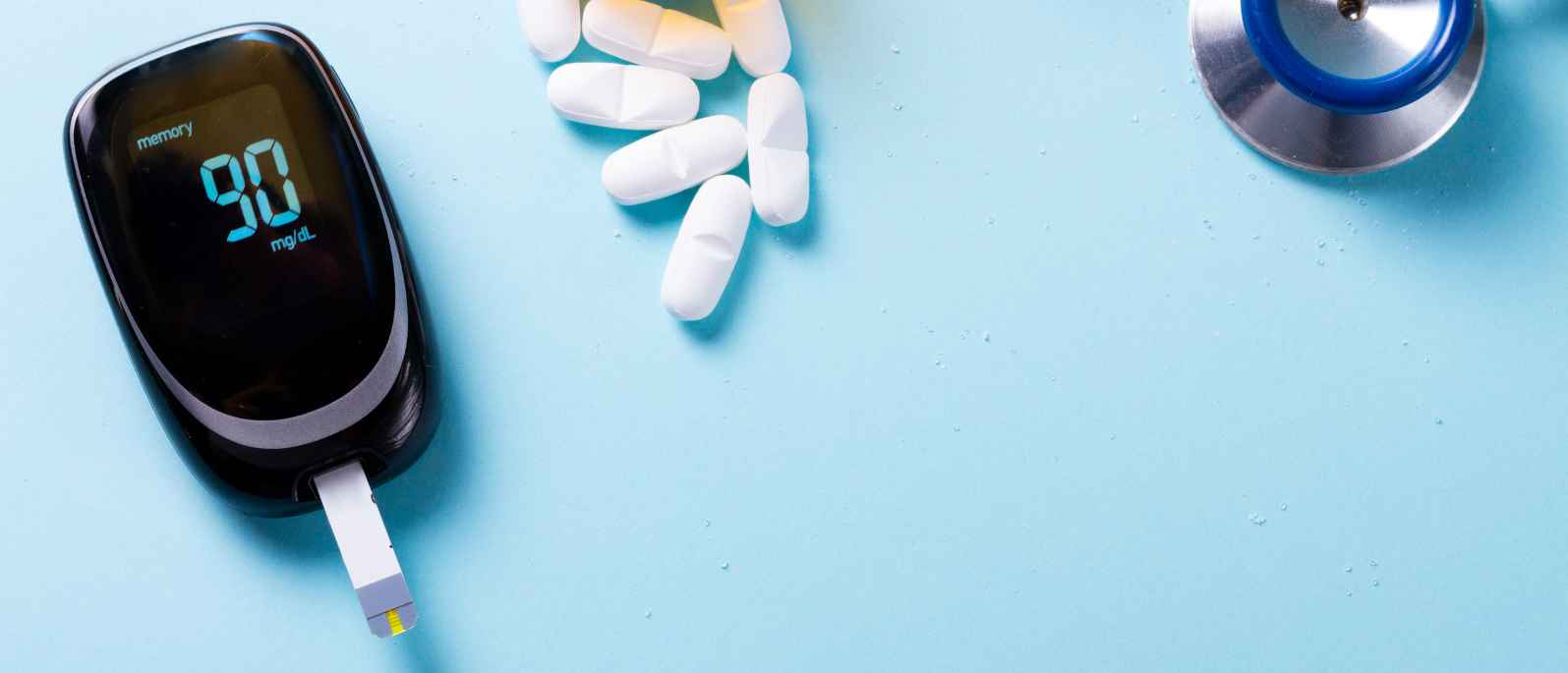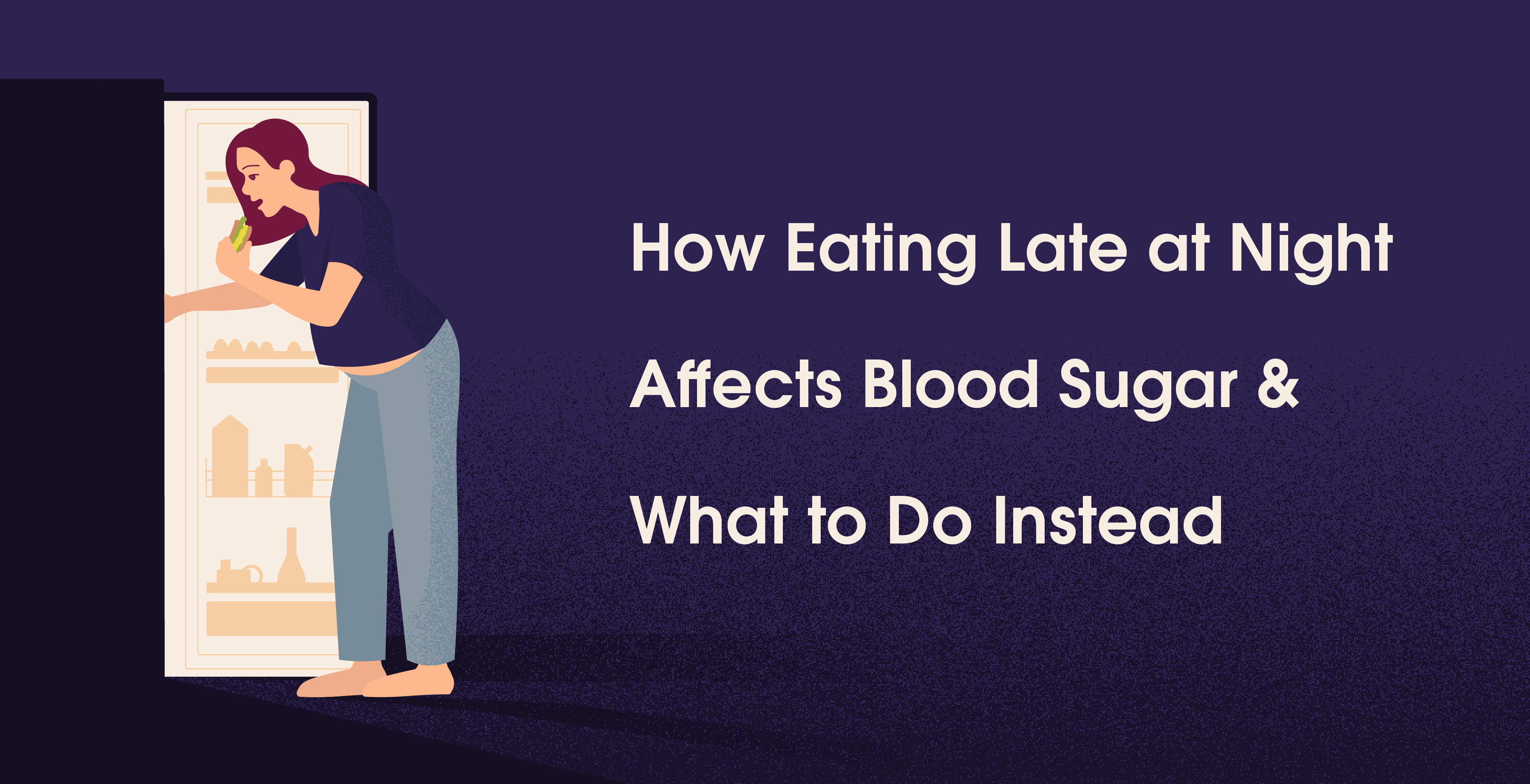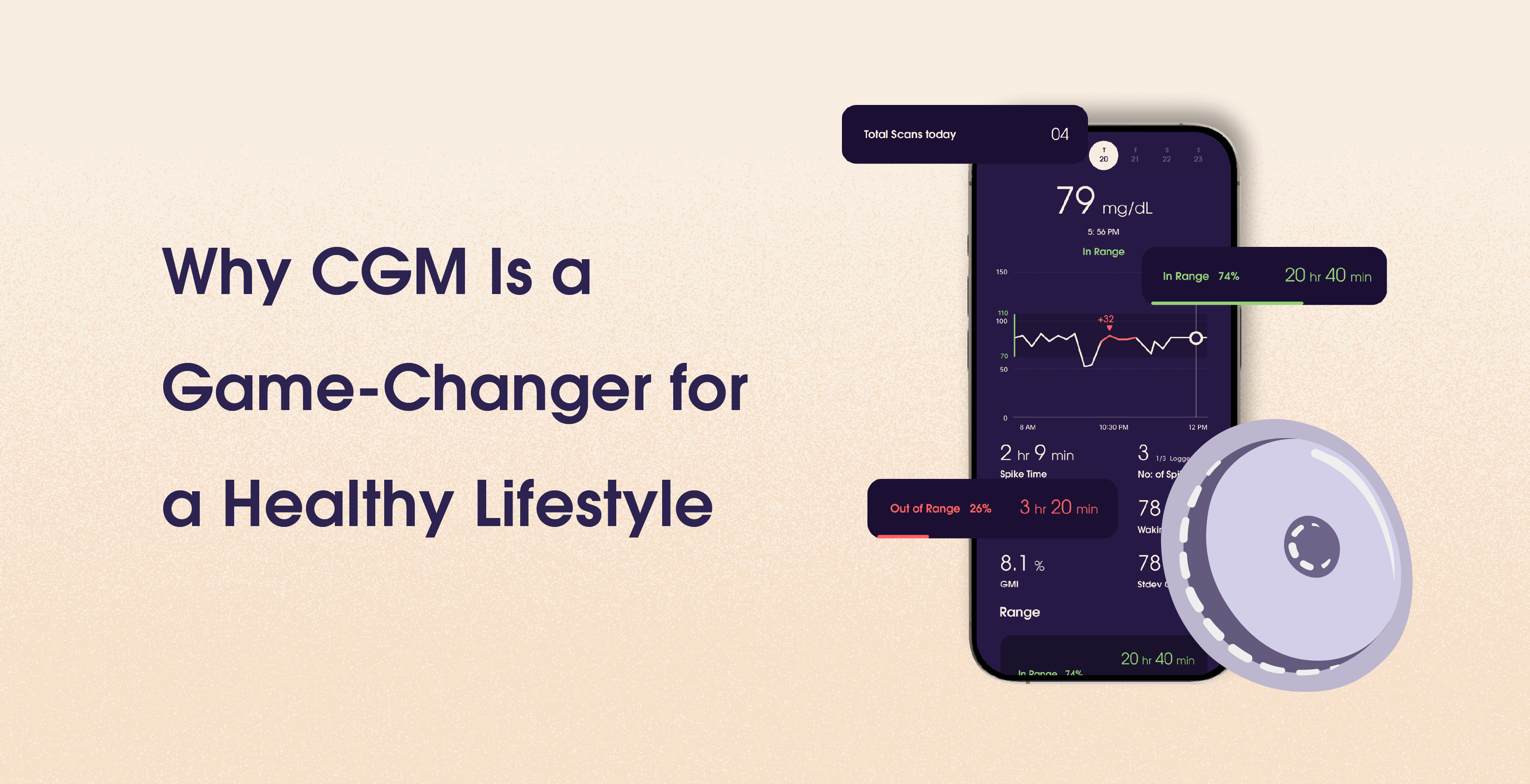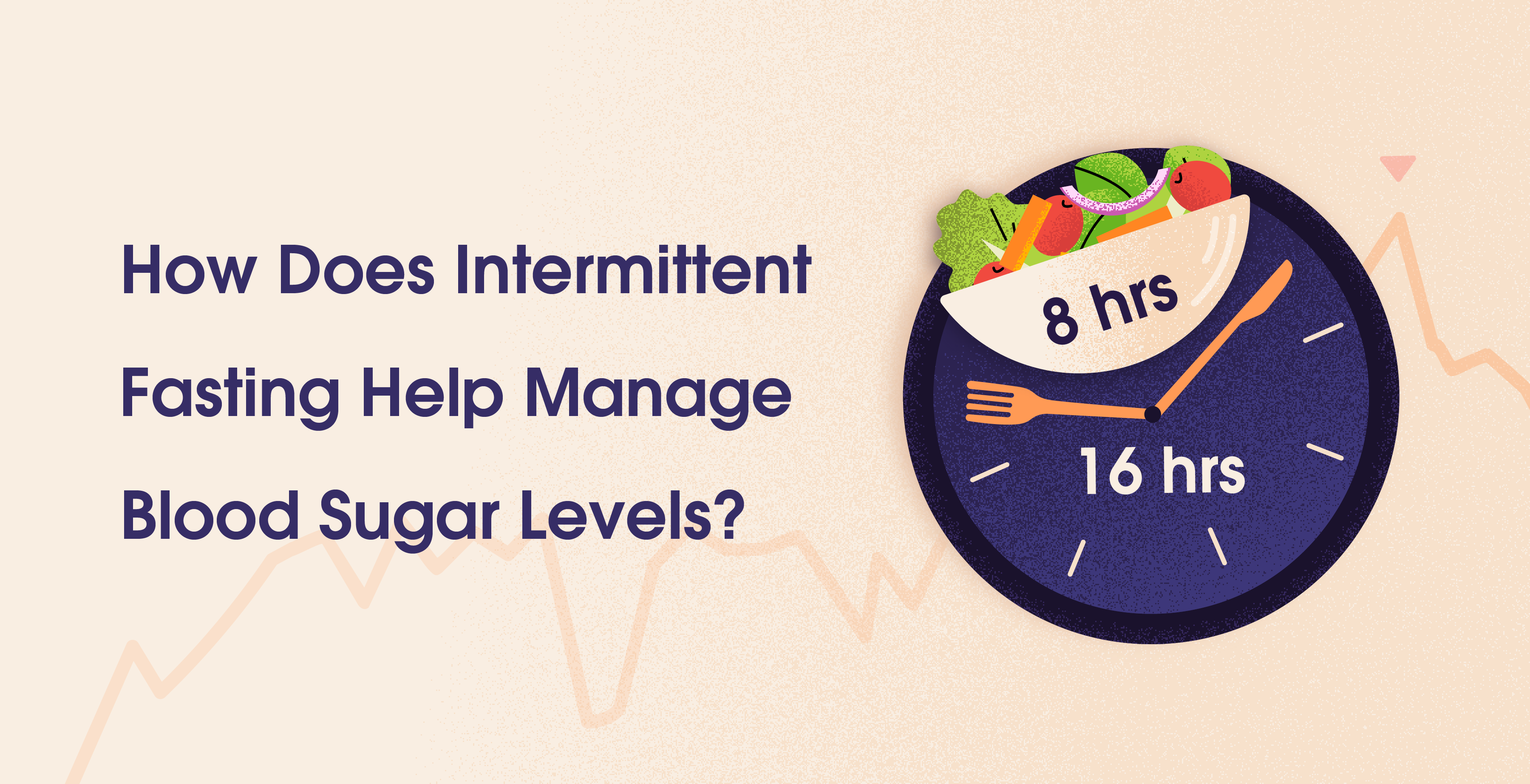Prediabetes Medication: What's Available and How They Work
Jan 14, 2024
Ashima Raizada



Table Of Contents
In a world where the word "diabetes" doesn't even make us blink anymore, touching the lives of 37.3% of people in the US, there's a quieter, sneakier issue at play: prediabetes. (1) Now, you might've stumbled across the term "prediabetes" and brushed it off, thinking, "It's no big deal, I'm not diabetic yet." You see, that's where we step in with all the information you can get on prediabetes medication.
Prediabetes: The Silent Threat and the Power of Prevention
Prediabetes is a quiet risk, ticking away in adults and children alike. It's the stage where your blood sugars are high - just not high enough to ring the diabetes alarm bells. (2) But here's a startling fact: nearly 38% of Americans are in this very boat - that's over a third of the country, silently paddling towards potential health troubles. What's even more alarming is that each year, 5% to 10% of people with prediabetes don't just stay there; they slide into full-blown diabetes territory. (3)
So, should this concern you? Absolutely. Can we stop prediabetes in its tracks with the right approach? One hundred percent. Is prediabetes medication something you should consider? Let's find out. (4)
Blood Sugar 101: The Science of Prediabetes
Before we get deeper into prediabetes, let's take some time to understand how the science behind it works. It all starts with something called our blood sugar. Blood sugar isn't just a term thrown around by doctors; it's the main source of energy for your body's cells, coming straight from the food on your plate, transforming into a form of sugar called glucose. Here's how it works:
You eat, and your body gets to work. Foods, especially those heavy in carbs, are broken down into simple sugars like glucose, which then cruise through your bloodstream. This spike in glucose signals your pancreas to get in on the action. Responding to the call, your pancreas releases a hormone called insulin into your bloodstream. (5)
Think of insulin as a VIP pass, granting glucose access into your body's cells, turning it into energy. No insulin means no entry for glucose, leaving it stranded in your bloodstream.
Normally, this insulin keeps everything balanced, ensuring blood glucose levels don't hit the roof or drop to the floor but stay just right.
But sometimes, things go haywire:
Insulin Resistance
Imagine your body's cells ignoring insulin. As a result, glucose can't get in and starts to accumulate in your bloodstream. This situation is what health experts refer to as insulin resistance.
Beta-cell Dysfunction
Or picture the insulin-producing cells in your pancreas getting weary and can't keep up with the demand from glucose, pumping out less insulin than your body needs.
Either of these issues causes blood glucose levels to rise rapidly, known as hyperglycemia. This isn't full-blown diabetes yet; it's the red flag before it, called prediabetes. And catching this red flag early could change the game in your health journey.
The Basics of Prediabetes Medication
When it comes to keeping prediabetes in check, prediabetes medications are often assumed to be the first line of defense. But it's not just about taking meds. Sure, they help bring down those sugar levels, but real success comes from teaming them up with a healthy lifestyle. We're talking about eating right, staying active, and maintaining a healthy weight. It's like putting together a life puzzle where medication is just one piece, not the whole picture. Sometimes, it may not even be necessary…just yet. So, while it's tempting to look for a quick fix, remember, it takes the whole squad working together to turn things around.
Prediabetes Medications
Biguanides (such as Metformin)
This is the most common go-to for keeping blood sugar levels in check. It works double duty: first, it tells your liver to ease up on making sugar, and second, it helps muscle cells respond better to insulin, so they can use sugar more efficiently. By doing this, Biguanides keep your blood sugar stable throughout the day and even after meals, putting the brakes on the shift from prediabetes to diabetes. (6)
Thiazolidinediones
Or TZDs for short, these meds get right to the heart of the matter by working on special receptors in your cells that help control how your body uses sugar and fat. When TZDs activate these receptors, your body becomes more sensitive to insulin, meaning sugar is used more effectively, and blood sugar levels go down. (7)
Alpha-glucosidase inhibitors
Think of these as the gatekeepers for sugar. They slow down the digestion of carbs in your intestines, meaning sugar enters your bloodstream at a slower pace, lowering blood sugar - meaning no more sugar spikes after meals. (8)
Now, let's not forget about some helpful supplements:
Myo-inositol and d-chiro-inositol
They're natural compounds that help with insulin's messaging inside your body, working together like a well-coordinated team to bring down your blood glucose level. In a small but promising study published in the International Journal of Endocrinology, researchers put these two compounds to the test for type 2 diabetes. In the group, 20 people showed a significant decrease in blood glucose levels making this supplement a good choice for managing your blood glucose levels. (9)
Berberine
Berberine, a natural compound found in several plants, isn't just good for you; it's got a host of health benefits! It's packed with qualities that calm inflammation and battle free radicals that can harm your body's cells. The real surprise though is how it can tackle blood sugar. It kicks into action an enzyme known as AMP-activated protein kinase (AMPK) - a switch that keeps your blood sugar levels in check. Studies have shown a significant decrease in HbA1C levels within just 3 months of usage. (10)
Alpha-lipoic acid (ALA)
This antioxidant is a cellular powerhouse. It's known for protecting against cell damage and reducing inflammation, making it easier for your body to respond to insulin. Research shows that the consistent use of ALA reduces the risk of progression from prediabetes to diabetes. (11)
Magnesium
This essential mineral does more than just support bone health; it's crucial for blood sugar management as well. Studies indicate that magnesium helps improve insulin function, a key factor for anyone with prediabetes. Research also points to a large number of type 2 diabetes patients being deficient in magnesium as insulin and glucose are regulators of magnesium. (12)
When Do You Need Medication For Prediabetes?
Managing prediabetes is like piecing together a tricky puzzle and the most important piece is living healthily. That means eating right, staying active, and not letting stress take over. And it's not just about keeping blood sugar levels in check; it's your shield against big health problems like heart disease, strokes, and kidney issues.
But here's the deal, sometimes even if you're doing everything by the book, your blood sugar levels might decide to go rogue - bodies can be unpredictable like that. That's when prediabetes medication might factor in, especially if you're more likely to get Type 2 diabetes.
The "more likely" part? That includes if you:
Are carrying more weight with a BMI of 35 kg/m² or more.
Are 35 or older.
Have family members with Type 2 diabetes.
Had diabetes while you were pregnant.
Come from certain backgrounds like African, American Indian, Asian, Hispanic/Latino, or Pacific Islander.
If any of this sounds like you, it's super important to keep an eye on things.
Remember, medication is not your starting line, and they're not magic pills, but they can give a helping hand to all those healthy habits you've been building. If all your hard work doesn't seem to be doing the trick, have a conversation with your doctor about the possibility of prediabetes medication. Share your lifestyle habits, voice your worries, and let their expertise steer you.
The Real Talk: Side Effects of Prediabetes Medication
Now that we've witnessed how prediabetes medications can be super helpful, let's also talk about some of the downsides. Just like anything else, there are two sides to every story.
Here's what you might experiences with prediabetes medication:
Hypoglycemia (low levels of blood sugar)
Nausea
Skin allergies
Abdominal pain
Gastrointestinal discomfort
But, hey, don't stress! Not everyone gets these side effects, and if they do pop up, discuss them with your doctor. (13)
Quick Tips for Managing Prediabetes Beyond Medication:
For those of you that do want quick suggestions on what you can do, here's a quick list of things you can start with, today:
Ensure Good Sleep
Prioritize quality sleep to balance hormones and stabilize blood sugar levels.
Food Sequencing
Eat foods in this order for better glycemic control: fiber, protein, then carbs.
Post-Meal Strolls
Take brief walks after meals to enhance glucose uptake by muscles and lower blood sugar.
Power Breakfasts
Start the day with a high-protein, savory breakfast for sustained energy and reduced cravings.
Fruit, the Whole Fruit
Choose whole fruits over juices for the benefits of natural sugars and fiber without rapid blood sugar spikes.
Healthy Weight, Happy Life
Maintain a healthy weight to improve insulin sensitivity and blood sugar control.
Dinner Timing
Finish dinner several hours before bedtime to support better sleep and blood sugar management.
Dessert Timing
Have dessert post-lunch, utilizing higher daytime insulin sensitivity and activity levels to manage blood sugar.
Mindful Coffee Consumption
Enjoy your coffee after breakfast and before 2 PM to avoid potential sleep disturbances and maximize its metabolic benefits.
Conclusion
Prediabetes is your body's low-key warning signal, and tackling it isn't just about popping pills. It's a team effort! Eating well, moving more, and cutting stress are your besties here. Sure, meds and supplements can help, but they're the backup singers, not the star of the show. And hey, they can have downsides, so keep your doc in the loop.
Don't forget the everyday saviors: good sleep, smart food choices, and that post-meal stroll. They make a big difference, seriously. It's all about balance. We're not just dodging diabetes; we're chasing a happier, healthier life. So, keep up the good work, stay positive, and remember, you've got this!
What Do I Ask My Doctor?
Heading to the doctor? It's always good to be prepared with questions. Here's a list of straightforward questions for your next appointment:
Am I at risk for prediabetes or type 2 diabetes?
Should I be tested for prediabetes or type 2 diabetes?
What are the warning signs and symptoms of type 2 diabetes I should be aware of?
What is a healthy weight goal for me?
Could you suggest some effective strategies for weight loss and maintenance?
How much physical activity do I need to help prevent or manage type 2 diabetes?
What dietary changes should I consider to prevent or delay type 2 diabetes?
Do my current blood pressure and cholesterol levels affect my risk of type 2 diabetes?
Could you provide some informational materials about preventing type 2 diabetes that I can review at home?
How much exercise do I need daily?
When should I start medication?
What are the side effects of my medication?
Can you recommend any diabetes prevention programs, either nearby or online?
References
In a world where the word "diabetes" doesn't even make us blink anymore, touching the lives of 37.3% of people in the US, there's a quieter, sneakier issue at play: prediabetes. (1) Now, you might've stumbled across the term "prediabetes" and brushed it off, thinking, "It's no big deal, I'm not diabetic yet." You see, that's where we step in with all the information you can get on prediabetes medication.
Prediabetes: The Silent Threat and the Power of Prevention
Prediabetes is a quiet risk, ticking away in adults and children alike. It's the stage where your blood sugars are high - just not high enough to ring the diabetes alarm bells. (2) But here's a startling fact: nearly 38% of Americans are in this very boat - that's over a third of the country, silently paddling towards potential health troubles. What's even more alarming is that each year, 5% to 10% of people with prediabetes don't just stay there; they slide into full-blown diabetes territory. (3)
So, should this concern you? Absolutely. Can we stop prediabetes in its tracks with the right approach? One hundred percent. Is prediabetes medication something you should consider? Let's find out. (4)
Blood Sugar 101: The Science of Prediabetes
Before we get deeper into prediabetes, let's take some time to understand how the science behind it works. It all starts with something called our blood sugar. Blood sugar isn't just a term thrown around by doctors; it's the main source of energy for your body's cells, coming straight from the food on your plate, transforming into a form of sugar called glucose. Here's how it works:
You eat, and your body gets to work. Foods, especially those heavy in carbs, are broken down into simple sugars like glucose, which then cruise through your bloodstream. This spike in glucose signals your pancreas to get in on the action. Responding to the call, your pancreas releases a hormone called insulin into your bloodstream. (5)
Think of insulin as a VIP pass, granting glucose access into your body's cells, turning it into energy. No insulin means no entry for glucose, leaving it stranded in your bloodstream.
Normally, this insulin keeps everything balanced, ensuring blood glucose levels don't hit the roof or drop to the floor but stay just right.
But sometimes, things go haywire:
Insulin Resistance
Imagine your body's cells ignoring insulin. As a result, glucose can't get in and starts to accumulate in your bloodstream. This situation is what health experts refer to as insulin resistance.
Beta-cell Dysfunction
Or picture the insulin-producing cells in your pancreas getting weary and can't keep up with the demand from glucose, pumping out less insulin than your body needs.
Either of these issues causes blood glucose levels to rise rapidly, known as hyperglycemia. This isn't full-blown diabetes yet; it's the red flag before it, called prediabetes. And catching this red flag early could change the game in your health journey.
The Basics of Prediabetes Medication
When it comes to keeping prediabetes in check, prediabetes medications are often assumed to be the first line of defense. But it's not just about taking meds. Sure, they help bring down those sugar levels, but real success comes from teaming them up with a healthy lifestyle. We're talking about eating right, staying active, and maintaining a healthy weight. It's like putting together a life puzzle where medication is just one piece, not the whole picture. Sometimes, it may not even be necessary…just yet. So, while it's tempting to look for a quick fix, remember, it takes the whole squad working together to turn things around.
Prediabetes Medications
Biguanides (such as Metformin)
This is the most common go-to for keeping blood sugar levels in check. It works double duty: first, it tells your liver to ease up on making sugar, and second, it helps muscle cells respond better to insulin, so they can use sugar more efficiently. By doing this, Biguanides keep your blood sugar stable throughout the day and even after meals, putting the brakes on the shift from prediabetes to diabetes. (6)
Thiazolidinediones
Or TZDs for short, these meds get right to the heart of the matter by working on special receptors in your cells that help control how your body uses sugar and fat. When TZDs activate these receptors, your body becomes more sensitive to insulin, meaning sugar is used more effectively, and blood sugar levels go down. (7)
Alpha-glucosidase inhibitors
Think of these as the gatekeepers for sugar. They slow down the digestion of carbs in your intestines, meaning sugar enters your bloodstream at a slower pace, lowering blood sugar - meaning no more sugar spikes after meals. (8)
Now, let's not forget about some helpful supplements:
Myo-inositol and d-chiro-inositol
They're natural compounds that help with insulin's messaging inside your body, working together like a well-coordinated team to bring down your blood glucose level. In a small but promising study published in the International Journal of Endocrinology, researchers put these two compounds to the test for type 2 diabetes. In the group, 20 people showed a significant decrease in blood glucose levels making this supplement a good choice for managing your blood glucose levels. (9)
Berberine
Berberine, a natural compound found in several plants, isn't just good for you; it's got a host of health benefits! It's packed with qualities that calm inflammation and battle free radicals that can harm your body's cells. The real surprise though is how it can tackle blood sugar. It kicks into action an enzyme known as AMP-activated protein kinase (AMPK) - a switch that keeps your blood sugar levels in check. Studies have shown a significant decrease in HbA1C levels within just 3 months of usage. (10)
Alpha-lipoic acid (ALA)
This antioxidant is a cellular powerhouse. It's known for protecting against cell damage and reducing inflammation, making it easier for your body to respond to insulin. Research shows that the consistent use of ALA reduces the risk of progression from prediabetes to diabetes. (11)
Magnesium
This essential mineral does more than just support bone health; it's crucial for blood sugar management as well. Studies indicate that magnesium helps improve insulin function, a key factor for anyone with prediabetes. Research also points to a large number of type 2 diabetes patients being deficient in magnesium as insulin and glucose are regulators of magnesium. (12)
When Do You Need Medication For Prediabetes?
Managing prediabetes is like piecing together a tricky puzzle and the most important piece is living healthily. That means eating right, staying active, and not letting stress take over. And it's not just about keeping blood sugar levels in check; it's your shield against big health problems like heart disease, strokes, and kidney issues.
But here's the deal, sometimes even if you're doing everything by the book, your blood sugar levels might decide to go rogue - bodies can be unpredictable like that. That's when prediabetes medication might factor in, especially if you're more likely to get Type 2 diabetes.
The "more likely" part? That includes if you:
Are carrying more weight with a BMI of 35 kg/m² or more.
Are 35 or older.
Have family members with Type 2 diabetes.
Had diabetes while you were pregnant.
Come from certain backgrounds like African, American Indian, Asian, Hispanic/Latino, or Pacific Islander.
If any of this sounds like you, it's super important to keep an eye on things.
Remember, medication is not your starting line, and they're not magic pills, but they can give a helping hand to all those healthy habits you've been building. If all your hard work doesn't seem to be doing the trick, have a conversation with your doctor about the possibility of prediabetes medication. Share your lifestyle habits, voice your worries, and let their expertise steer you.
The Real Talk: Side Effects of Prediabetes Medication
Now that we've witnessed how prediabetes medications can be super helpful, let's also talk about some of the downsides. Just like anything else, there are two sides to every story.
Here's what you might experiences with prediabetes medication:
Hypoglycemia (low levels of blood sugar)
Nausea
Skin allergies
Abdominal pain
Gastrointestinal discomfort
But, hey, don't stress! Not everyone gets these side effects, and if they do pop up, discuss them with your doctor. (13)
Quick Tips for Managing Prediabetes Beyond Medication:
For those of you that do want quick suggestions on what you can do, here's a quick list of things you can start with, today:
Ensure Good Sleep
Prioritize quality sleep to balance hormones and stabilize blood sugar levels.
Food Sequencing
Eat foods in this order for better glycemic control: fiber, protein, then carbs.
Post-Meal Strolls
Take brief walks after meals to enhance glucose uptake by muscles and lower blood sugar.
Power Breakfasts
Start the day with a high-protein, savory breakfast for sustained energy and reduced cravings.
Fruit, the Whole Fruit
Choose whole fruits over juices for the benefits of natural sugars and fiber without rapid blood sugar spikes.
Healthy Weight, Happy Life
Maintain a healthy weight to improve insulin sensitivity and blood sugar control.
Dinner Timing
Finish dinner several hours before bedtime to support better sleep and blood sugar management.
Dessert Timing
Have dessert post-lunch, utilizing higher daytime insulin sensitivity and activity levels to manage blood sugar.
Mindful Coffee Consumption
Enjoy your coffee after breakfast and before 2 PM to avoid potential sleep disturbances and maximize its metabolic benefits.
Conclusion
Prediabetes is your body's low-key warning signal, and tackling it isn't just about popping pills. It's a team effort! Eating well, moving more, and cutting stress are your besties here. Sure, meds and supplements can help, but they're the backup singers, not the star of the show. And hey, they can have downsides, so keep your doc in the loop.
Don't forget the everyday saviors: good sleep, smart food choices, and that post-meal stroll. They make a big difference, seriously. It's all about balance. We're not just dodging diabetes; we're chasing a happier, healthier life. So, keep up the good work, stay positive, and remember, you've got this!
What Do I Ask My Doctor?
Heading to the doctor? It's always good to be prepared with questions. Here's a list of straightforward questions for your next appointment:
Am I at risk for prediabetes or type 2 diabetes?
Should I be tested for prediabetes or type 2 diabetes?
What are the warning signs and symptoms of type 2 diabetes I should be aware of?
What is a healthy weight goal for me?
Could you suggest some effective strategies for weight loss and maintenance?
How much physical activity do I need to help prevent or manage type 2 diabetes?
What dietary changes should I consider to prevent or delay type 2 diabetes?
Do my current blood pressure and cholesterol levels affect my risk of type 2 diabetes?
Could you provide some informational materials about preventing type 2 diabetes that I can review at home?
How much exercise do I need daily?
When should I start medication?
What are the side effects of my medication?
Can you recommend any diabetes prevention programs, either nearby or online?
References
Table Of Contents
Table Of Contents
Table Of Contents
Read More


Mar 25, 2025
Sayfali Rawlani


Mar 20, 2025
Sayfali Rawlani


Mar 6, 2025
Sayfali Rawlani



Company
Copyright © 2025 trst health. All right reserved.

